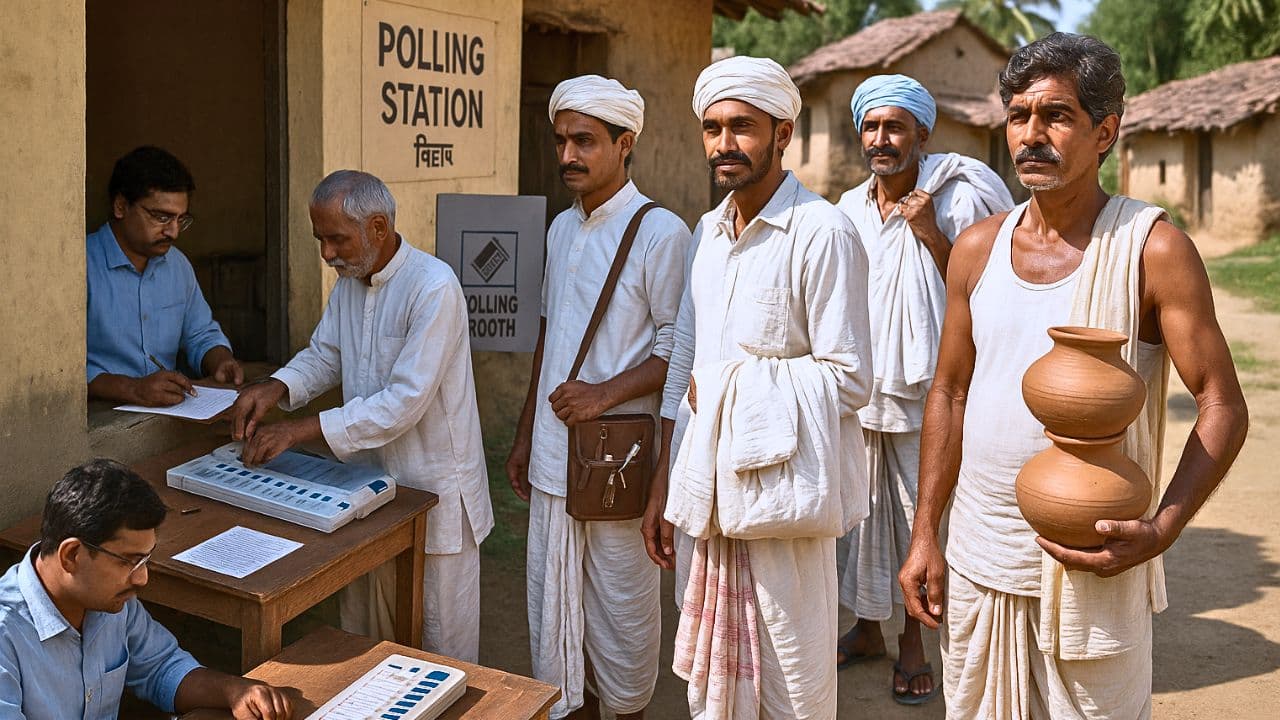The most backward castes are going to play a decisive role in the Bihar assembly elections. 112 subcastes, which are more than 36% of the state’s population, can prove to be a game changer this time. NDA, RJD and Congress are all parties to help these communities.
Bihar Chunav 2025: Political equations are going to change completely in Bihar assembly elections 2025. This time the key to power is in the hands of the backward castes, whose 112 sub -castes are more than 36 percent of the total population of the state. Political experts believe that this election is going to be the biggest evidence of the political rise of the most backward castes and will start a new era in Indian politics. This time the entire emphasis of both NDA and Grand Alliance coalitions is on those castes, whose participation in power has been negligible till now. Castes like Kumhar, Nai, Malakar, Khatve, Dhobi, Teli, Kalwar, Kahar are now ready to come in the mainstream.
End of years neglect
The situation of the most backward castes has been marginalized for the last seven decades in Bihar politics. Despite the recommendations of the Mandal Commission in the 1990s, these castes did not get the part in political representation they deserved. While other backward castes like Yadav, Kurmi, Koiri made a strong hold in political power, the most backward castes were considered to vote, but not the leadership.
NDA strategy
Chief Minister Nitish Kumar considers himself the biggest advocate of the most backward castes. He argues that he not only provided reservation to these castes but has also given them priority in administrative appointments.
- JDU’s ambitious plan: Out of 115 seats won by JDU in the 2020 election, 67 candidates were from backward and extremely backward castes, out of which 27 were only from extremely backward castes. This time the party has targeted to increase this number to 40-45. According to senior JDU leaders, the party is giving priority to the sub -castes who have never found representation in the assembly.
- BJP’s selected strategy: In the upcoming important meeting of the BJP, giving tickets to those sub -castes can be approved, which have been away from political mainstream till now. The party’s national general secretary and Bihar in -charge Vinod Tawde recently said that the basis of BJP’s victory in Bihar will be widespread social inclusion. The party has also given priority to the most backward in recent years in the Rajya Sabha and the Legislative Council.
Getting Bharat Ratna to Jannayak Karpoori Thakur is also proving to be the master stroke of NDA. By giving this honor to Karpoori Thakur coming from the barber caste, Prime Minister Modi has worked to create emotional engagement among the most backward castes.
RJD has also changed the strategy
After the Lok Sabha elections, RJD has also made a big change in its strategy. Recently, by giving the responsibility of the state president, Mangani Lal Mandal (Kalwar caste), the party has given a clear message that it wants to bring the most backward castes closer to them.
Lalu Prasad’s formula to practice Kushwaha fraternity has already proved successful. He won the trust of this community by giving leaders like Lalan Singh, Mukesh Sahni important in the party. Now they are also adopting this strategy for other backward castes. Tejashwi Yadav recently said, “Our party has always been an advocate of social justice. Now the time has come for the most backward communities to come in the role of leadership.”
Successful use of CPI Male
The third major component of the Grand Alliance CPI Male has been working on this strategy since 2020 and has also taken advantage of it. The last time he got all the backward-backward, Dalit and minority candidates in 19 seats, out of which 12 also won.
Congress’s changed strategy
There is also a clear change in the strategy of the Congress along with Rahul Gandhi’s increased Bihar tours. Earlier, the trust of the party was mainly on Brahmins, Dalits and minority voters, but now it has changed to “Brahmin-Dalit-backward”. Before the election, the party has made its intention clear by handing over the command of the state president to a Dalit leader Rajesh Kumar. Also, leaders of extremely backward castes in different districts are being appointed to important positions. Congress leaders say that the Congress has always been an advocate of inclusive politics. Now we are making it even more comprehensive.
Regional influence of castes
- Impact in North Bihar: Districts like Sitamarhi, Muzaffarpur, Darbhanga and Samastipur have an important population of Kahar, Barber, Dhobi community. The political influence of these castes is increasing here.
- Status of South Bihar: There is a strong presence of Teli, Kalwar, Kumhar castes in Patna, Gaya, Jehanabad, Arwal. Election results in these areas will largely depend on the voting patterns of these communities.
- Activity in East Bihar: The effects of Malakar, Dhanuk, Gond community are seen in districts like Bhagalpur, Munger, Khagaria.
Political upliftment of the most backward castes is not only a matter of electoral mathematics, but it has broad social and economic implications. Increasing the political representation of these castes will also give better protection to their economic interests. Traditionally, these castes have been working in agricultural laborers, small business and service sectors. With political representation, new opportunities for education and employment for these communities will open. Reservation policy will also be better implemented.
